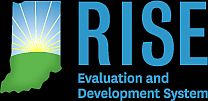 03/13/12 It’s no secret that Indiana has incorporated a number of reform measures over the last few years to help ensure that Indiana’s children are getting the best education possible to launch them into the 21st century. The state implemented the voucher system; increased the number of charter schools, and is continuing to refine a new grading system for individual schools. Failing schools can now be taken away from a school district and put under the watchful eye of the state.
03/13/12 It’s no secret that Indiana has incorporated a number of reform measures over the last few years to help ensure that Indiana’s children are getting the best education possible to launch them into the 21st century. The state implemented the voucher system; increased the number of charter schools, and is continuing to refine a new grading system for individual schools. Failing schools can now be taken away from a school district and put under the watchful eye of the state.
As school opens in the fall of this year, added requirements by the Indiana Department of Education will mean a dramatic change in the way teachers are evaluated. In short, teachers not meeting the standards could be eliminated and superior teachers will likely be rewarded. A part of the total evaluation considers standardized test scores.
In the past, the administrators of a school did yearly evaluations, but there was no state-wide uniform system. Now, a state law is in place that will require teachers to be evaluated each year using specific criteria. Although the state has designed a system called RISE, districts are free to use RISE, TAP (Teachers Advancement Program), or devise a tool of their own that is approved by the state.
Many Marshall County administrators are coming together to receive training on the use of RISE. With RISE, teachers can be evaluated by principals, other teachers or even outside consultants. TAP, a nationally recognized system, requires that all evaluations be done by a principal, assistant principal, “master” teacher or “mentor” teacher. Every year teachers under the TAP evaluation system are evaluated based on 27 observations.
RISE was created by a panel of Indiana educators. According to the IDOE website, the Indiana Evaluation Cabinet along with representatives of The New Teacher Project studied the topic and devised the evaluation rubric over a two-year period. The system doesn’t use a checklist or include yes/no questions, but uses indicators to show effectiveness or ineffectiveness of a teacher’s ability to do the job.
Administrators will also be challenged to provide improvement or professional developmental plans and other guidelines to help teachers become more successful. The system is also designed to include “self-reflection” by teachers.
The systems use a rubric tool that rates teachers on a 1-4 scale, with 1 being the lowest. The evaluations must include at least five observations every year. Those teachers rated ineffective can be fired. After two years, those rated in the ineffective or needing improvement categories twice as a 1 or 2 can be let go. Raises can also be withheld for teachers who fall into the 1-2 categories.
Indiana’s Superintendent of Public Instruction, Tony Bennett, has consistently shared his opinion that the current system of evaluations used by school districts does not address poor performances. At one point, Bennett said the DOE did a study using a sampling of school districts throughout the state and found that 99 percent of teachers were rated effective. These findings prompted Bennett to say that 99 percent is a “statistical impossibility”.
One Plymouth Schools administrator, Menominee Elementary Principal Michael Dunn, believes the evaluation system will be helpful. Dunn said, “I like how the evaluation process has to be evidence based, more objective, and puts equal accountability on both teachers to show his/her abilities and administrators to record facts concerning the instruction.” He added, “It requires more observations, but if you’re good at what you do, it allows for more opportunities to see what should be observed.” “The rubric is not a hidden “gotcha” game. Both the teacher and the administrator know what to expect.” Dunn said.
Union-North School Corporation Superintendent Mitch Mawhorter has held positions as principal in elementary, middle school and high school settings. He took over the top spot at Union-North in January of this year. Mawhorter, who is attending the RISE training, said, “The RISE evaluation is very valuable and very eye opening.” “It follows the law very well and is pretty comprehensive.” Mawhorter said. He indicated that he feels the structure of RISE shows teachers how to conduct their classes according to the law.
Triton Elementary Principal Jeremy Riffle concurred. He said, “The RISE is a comprehensive evaluation model that assures teachers and administrators are fully aware of he expectations while systematically aligning effective instruction and student growth.” Riffle added, “No longer is the evaluation process ambiguous and lacking substance. The RISE gives a clear objective and specifically gives evidence where teachers excel and where improvement is necessary.”
Other states implementing or in the process of revising legislation concerning teacher evaluations includes Florida, Massachusetts and Tennessee.
Carol Anders Correspondent














